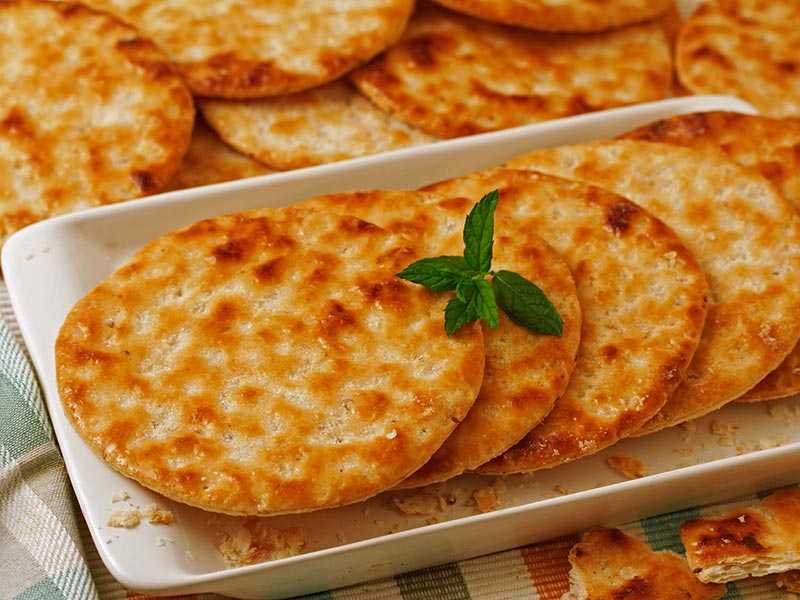Olive oil cakes have ancient origins, as they have been present since the Middle Ages in most Mediterranean villages where olive trees are commonly cultivated. Both the Jews and the Arabs spread their preparation and consumption throughout the regions where they settled.
There are many variations, all of which have wheat or other cereal flour and extra virgin olive oil in common. Once the dough has been prepared and rolled out by hand, they are usually prepared fried or baked.
In Spain, the most traditional recipes have their origins in Arab, Jewish or Mozarabic recipes and most are flat and round in shape and are usually sweet and seasoned with aniseed, cinnamon, matalahuga, sesame or some other spice.
There are the orelletes, typical of Catalonia, whose recipe can be found in the “recipes” section of our website and which are prepared in various regions to brighten up different celebrations: Easter, local festivals, etc. You will also find the recipe for Sevillian cakes on our website.
In the Balearic Islands they prepare a similar recipe and call them orellanes.
In Castilla y León they make tortas de aceite castellanas, similar to a round loaf and covered with oil. The tortas de Aranda de Duero are similar to pita bread, spongy and with dimples on the surface to allow the oil to penetrate before baking, and the tortas dulces manchegas, similar to the above but toasted and covered with sugar.
In Aragon we find oil cakes from Teruel and Alcubierre in Huesca and ‘pan de cañada’.
In Galicia, where in addition to olive oil it is customary to add lard when slaughtering the pig at the beginning of Carnival, they prepare “orejas de fraile” or “orellas de entroido”, a fried pastry with ground sugar on top.
Andalusia reigns supreme in popularity for its famous oil cakes, some with their own name, such as those known as tortas Inés Rosales, made with extra virgin olive oil and made for more than a century, traditional and exported to many countries. Sevillian tortas de aceite are sweet, crunchy and flaky, coated in sugar and sesame. In other Andalusian provinces such as Córdoba and Jaén they are known as ‘tortas dormías’ and in Granada they are called ‘salaillas’.Similar cakes are also made in Portugal, Greece, Italy, Turkey, Morocco and other Mediterranean countries. The dough is always similar: flour, sometimes eggs, extra virgin olive oil, some herbs or liquor, cinnamon, sesame, salt and sugar.
You can either prepare a traditional recipe that you can easily find on the internet or get creative by preparing your own oil cakes to your own personal taste. This is the season for olive oil, so take advantage of the opportunity to prepare a healthy pastry, without preservatives or colourings, which will delight the whole family and remember that the Mediterranean diet has been recognised by UNESCO as an intangible cultural heritage of humanity and our olive oil cakes can certainly be included in this healthy diet.





